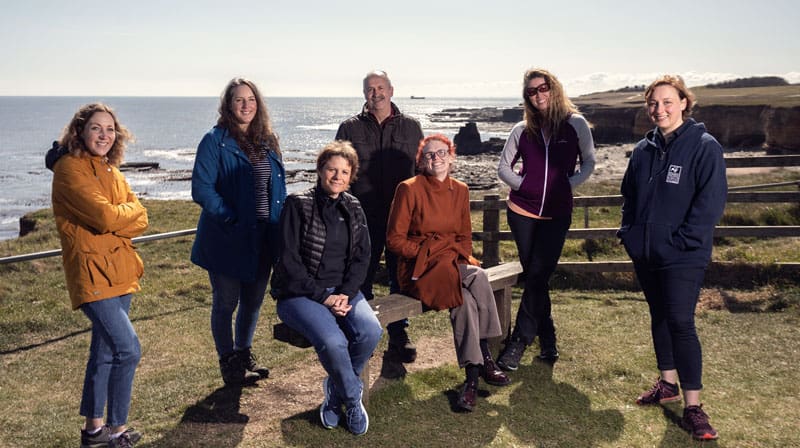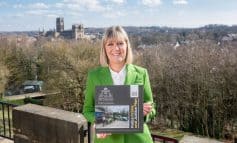To coincide with World Ocean Day on Tuesday (June 8), the UK’s first marine Landscape Partnership scheme and brand-new project team in the North East: SeaScapes has been launched.
Durham County Council secured National Lottery support via a National Lottery Heritage Fund grant of £2.8m, matched by partner contributions and volunteer time, for the exciting marine landscape partnership heritage project, SeaScapes.
Made possible by money raised by National Lottery players, SeaScapes is a partnership of organisations across the natural, cultural and heritage sectors that have come together to better protect and celebrate the unique coastline and marine environment to six nautical miles out between the rivers Tyne and Tees.
Benefiting communities in Durham, Hartlepool, South Tyneside and Sunderland, the SeaScapes scheme will deliver 23 projects – both on-shore and beneath the sea – over the next three years.
The full project title is ‘Tyne to Tees, Shores and Seas – SeaScapes Partnership’, elaborates on the wider remit and critical effort needed both above and below the sea to unite people and planet, and protect what’s important across our communities.
The SeaScapes project is led by Durham County Council and consists of a consortium of partners united in their collective mission to influence support and increase protection of our sea and coastline.
The seven-strong core team comprises Delivery Manager, Karen Daglish, and three team members from Durham County Council: Access and Volunteering Coordinator, Vicky Ward; Finance and Grants Officer, Peter Carr; Beach Care Advisor, Louise Harrington. Plus, three further team members representing partner organisations: Intertidal Interactive Project Officer, Dorinda Kealoha (from Durham Wildlife Trust); Bluescapes Officer, Sarah Campbell (from the National Trust); and Creative Producer, Suzy O’Hara (from the University of Sunderland).
The team’s collective experience spans over 100 years and their passion for marine and environmental conservation is palpable through an array of relevant experiences spanning marine engineering to environmental science and marine mammal medicine.
SeaScapes’ core focus for 2021 and beyond is for the communities and individuals up and down the Tyne to Tees coastline to start to feel more connected with the sea. SeaScapes’ activities are designed to inspire coastal communities to take a walk on the beach, look out to sea and question what lies beneath the waves.
Karen Daglish, SeaScapes manager, said: “There are stories waiting to be told from the Zechstein Sea, through ice ages, wars and significant industrial history up to the present day. However, they are not our stories to tell, they belong to the communities, so we are really excited to start our engagement programme and discover more about this special coastal and marine environment.
“We want people to start to question how they interact with the ocean, and how being by the ocean has influenced their lives. Also, how we, as humans, have impacted on the Tyne to Tees marine environment over time, and how this in turn will lead to positive action to better protect our marine landscape.”
Lawrence Brown, chair of SeaScapes, said: “As we emerge from Covid-19, having seen so many people take great comfort and support from being next to, in, or on, the sea, now is the time for stakeholders to engage with the SeaScapes project and realise the difference their efforts can make.
“Many studies have shown that spending time by the sea has a positive impact on mental health and wellbeing.”
With visitors to our coastline more than doubling over the last year, it is a great opportunity to shed more light on why the Tyne to Tees seascape is special and deserves more attention.
There are lots of activities that communities and businesses can get involved in over the next few years including:
• Regular beach cleans
• Family oriented activities on the beach, such as rock pooling
• Habitat surveys and habitat creation of the Durham Argus Butterfly on coastal cliffs
• An exciting Citizen Science programme
• Community archaeology exploring coastal defence structures
• Field names survey to trace how townships have evolved around the sea
• School projects looking at how communities change over time as their relationship with the sea has changes
• Shipwreck dives with Newcastle University and local dive clubs
• A programme of on water activity – sailing, canoeing etc.








